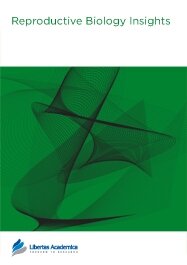

Publication Date: 02 Sep 2013
Type: Review
Journal: Reproductive Biology Insights
Citation: Reproductive Biology Insights 2013:6 11-18
doi: 10.4137/RBI.S12217

The evolution of the large and complex brain was a big advantage to early humans in their social interactions and encounters with unfamiliar habitats. But it was not without a high cost to women’s sexual and reproductive health. The developing fetal brain needs and consumes a lot of energy. To meet this need, a more intensely invasive placenta evolved and with it, the risk of excessive bleeding when the placenta separates partially or completely from the uterine wall, a major cause of maternal death. Delivering the large fetal head is an obstetric dilemma, particularly with the relatively narrow and irregular bipedal pelvis. The additional long time needed for the postnatal growth of the brain dictated the necessity for continued paternal investment. To strengthen the pair bond, sex was completely dissociated from reproduction and ovulation was concealed. However women then became vulnerable to sexual violence, sexually transmitted infections, and unwanted pregnancy. Recently, the human brain has been repaying women in the currency of modern science, including making motherhood safer and developing women-controlled contraceptive technologies. Scientific challenges still stand. For example, the modern woman has to cope with the burden of a reproductive system evolved for a hunter gatherer. Women have already fulfilled the divine obligation to replenish the earth, and it is time for science to help women to finally emerge from behind the mother.
PDF (507.14 KB PDF FORMAT)
RIS citation (ENDNOTE, REFERENCE MANAGER, PROCITE, REFWORKS)
BibTex citation (BIBDESK, LATEX)

In my experience Reproductive Biology Insights is a model for author-friendly open access journals, combining rigorous peer review with efficient speedy processing. It has been a pleasure--and no pain--working with such a good editorial and production team.
Facebook Google+ Twitter
Pinterest Tumblr YouTube